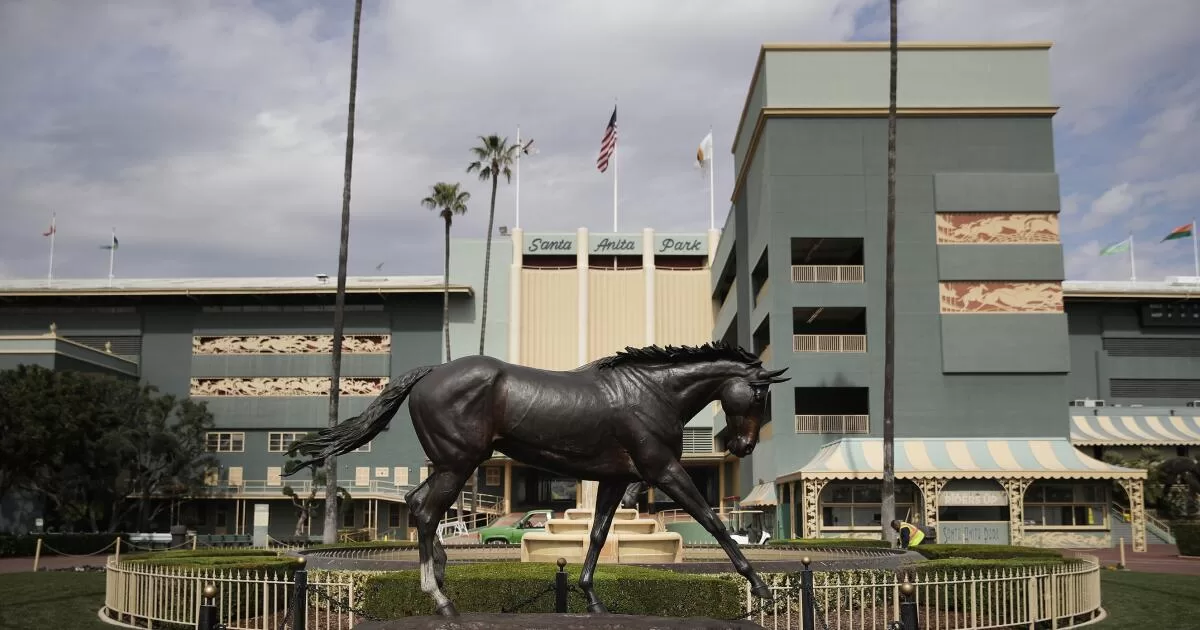Six commissioners were present to vote Thursday to grant the dates to Golden State Racing, which is essentially the same group that runs the fair circuit. The meet will last 10 weeks from Oct. 19 to Dec. 15.
But not all hurdles were crossed. The Northern California group will have to be granted a license, which means any major hiccups to get the track ready could derail the effort. This is true of any racetrack. The expectation, if things go well, is the track also will be issued a license for the winter and spring of next year. One huge disadvantage is that the Pleasanton track, located at the Alameda County Fair, does not have a turf course. The operators promised a grass course in one or two years.
The meeting was held at Cal Expo in Sacramento with more than 250 people attending, the overwhelming majority in favor of continuing racing in Northern California. The hole in the schedule happened because the Stronach Group, owner of Santa Anita, is closing Berkeley’s Golden Gate Fields in June. This was the only agenda item of substance and discussion for almost 3½ hours.
The Pleasanton presentation by Larry Swartzlander, executive director of the California Authority of Fairs, was short on facts and the questioning by the board made it seem as if its hopes for racing dates were not good.
But when 1/ST Racing, a subsidiary of the Stronach Group, made its presentation, the board seized on a letter that Craig Fravel, executive vice-chairman of 1/ST Racing & Gaming, sent in which he said the Stronach Group would do “an analysis of alternative uses for Santa Anita.” In short, it was a threat to close or sell the track if it didn’t get its way. The letter was first reported by The Times.
Commissioner Wendy Mitchell scolded Fravel for his evasiveness on what purse cuts there might be if the Northern California proposal was passed. She also pointed out that if this issue was so important to Southern Californi, why didn’t Los Alamitos send a representative to the meeting? She also wondered why Santa Anita made no effort to reach out to the Northern California group to come up with a solution that would work for everyone.
Commissioner Thomas Hudnut bristled at the thought that it was up to the CHRB to help fix the problems of Santa Anita.
“Setting up the CHRB as the determinant for you to go out of business is really unfair,” Hudnut said. “Because if you go out of business, it’s because of mismanagement, not because of this board.”
But it was commissioner Damascus Castellanos who offered the most stinging assessment of Santa Anita’s strategy.
“The letter bothers me,” Castellanos said. “I’m not too kind about bullies but if that’s the way you want it to seem then that’s the way it is. … You are trying to put the burden on the CHRB and that’s not our responsibility. We don’t close tracks. … But it’s sad to say with a letter like that, it comes across ‘If you don’t do it my way, I’m going to take my ball and leave.’ That’s not cool.
“Now we have the north against the south and I received a lot of calls. I’m not upset because of the calls, I’m upset because I don’t do well with bullies. … The bottom line is we need to work together. We need to figure out how to keep racing in California. Not just Northern, not just Southern, but in California. There is no reason to cannibalize each other. Your letter, to me, was crap. It shouldn’t have been done. But that’s the way you chose to play the game and we’ll go from there.”
Clearly, the strategy by Santa Anita didn’t work. The vote was expected to be very close, not unanimous. But that was before the letter.
By the time Bill Nader, executive director of the Thoroughbred Owners of California, gave a presentation on why there should be one circuit, not two, the fight was over and most on the board already had made up their minds.
Alan Balch, executive director of the California Thoroughbred Trainers, put the cherry on top by calling out the hypocrisy of Santa Anita demanding to see financial documents of the Northern California group while never disclosing its own records and offering conflicting reports of its profitability.
“We need a chance to see what will happen in Northern California,” Balch said.
In Fravel’s “now-infamous letter,” as he called it, he said the track has had operating losses in excess of $31 million in the last five years. He also said the track has invested $32 million in big capital projects to include a Tapeta training track, a new turf chute and environmental projects.
The main reason for Santa Anita’s opposition to the Northern California proposal is legislation that it helped usher through at the end of last year that stipulated if there is no live racing in Northern California, outside of the summer fair circuit, all simulcast revenue from the north would go to the south, to Santa Anita, Del Mar and Los Alamitos.
Now the question is if Santa Anita will follow through on its threat to close or sell the track. The land the track sits on could be worth more than $1 billion if developed. And that may be the biggest factor of all.
